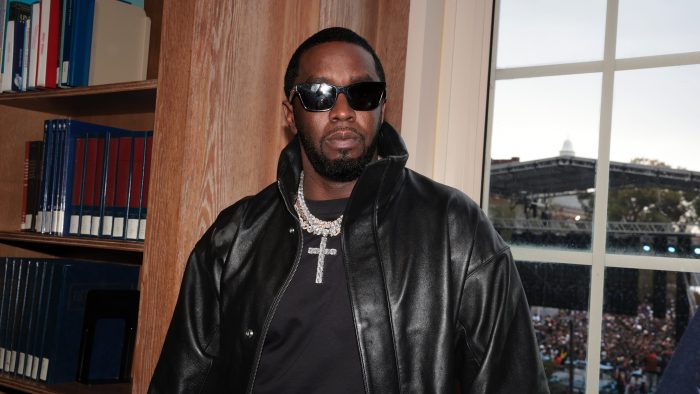There’s a lyric that should haunt Sean “Diddy” Combs. It’s not remotely close to his most memorable. Yet, it is fitting, given his current legal and moral quagmire. The only thing more ironic than the lyric itself is the song title.
“Forgive me for the pain I’ve caused,” he rapped on “Is This The End?” in 1997 “and the sins I’ve committed.”
Combs currently sits in Metropolitan Detention Center in Brooklyn, New York, for some of those alleged sins, facing federal charges of racketeering conspiracy, sex trafficking and transportation to engage in prostitution. Additional lawsuits continue to pile up from men and women, some who claim they were underage when Combs allegedly assaulted them. His legal team denies he has engaged in any wrongdoing, and attempts to contact Combs’ lawyers for this article were unsuccessful. Combs’ trial is currently set for May 2025.
Salacious rumors about his power have existed in the pop cultural zeitgeist for decades. Over the last year, the world has watched as Combs’ empire has crumbled from within. His legacy — irreparably fractured. His massive fortune, still massive, but also feeling the impact of his current hell. His famous White Parties are relics of a luxurious past, while his alleged “freak-offs” are now firmly entrenched in the American lexicon and live near the heart of Combs’ legal trouble. He is no longer a symbol of enormous success. Instead, Combs now quarterbacks one of the great American falls from grace.
Related Story
Cassie’s lawsuit against Sean ‘Diddy’ Combs is the latest chapter in hip-hop’s uncomfortable history with #MeTooRead now
“I remember when The Lox signed [to Bad Boy Records][and]finding out how awful their deal was. People jokingly referred to it like, ‘Oh, they got that Diddy deal,’ ” award-winning author and Yonkers, New York, native Shanita Hubbard said. “Beyond any sexual assault allegations, I always saw him as predatory because he exploited young Black and brown men from the ‘hood … But while I saw him as a predator, he continued to grow into places I couldn’t even imagine hip-hop would go. That’s why I saw Puffy as too big to fail. I didn’t think it would ever be possible for him to face any form of accountability.”
Combs’ name is never far from the lips of public discourse. But now grave updates are the daily routine. Just this week, new lawsuits were filed Monday that said Combs sexually assaulted underage boys, ages 10 and 17. TMZ reported that Combs’ sons Quincy Brown, Justin Combs, and Christian Combs confronted singer Ray J at a Halloween party over comments made regarding their father’s situation. Combs turns 55 on Monday, and barring unforeseen developments, he’ll be bringing in his birthday in jail or, at best, a courtroom.
Very little surprises Drew Dixon about the music industry. A former executive at Def Jam Recordings and Arista Records, she once truly believed that the art form could and would change the world. But she experienced and survived the ugliness, misogyny, and patriarchy that permeated the industry. It also forced her to leave.
In recent years, Dixon has become one of the foremost forces and voices for survivors of sexual assault and rape. She was featured in the critically acclaimed 2020 documentary On The Record, detailing the experiences of women who were reportedly assaulted and raped by Def Jam Recordings co-founder Russell Simmons. Dixon was one of the leading advocates for the Adult Survivor’s Act — the bill passed by the state Senate in New York that made Cassie’s bombshell lawsuit possible. Dixon also filed a lawsuit against L.A. Reid in November 2023, accusing the music mogul of sexually assaulting her twice in 2001 when they worked at Arista Records.
Dixon has watched as Combs’ life unraveled. Her past with him was “strictly business in an industry that doesn’t always feel strictly business,” she said. Dixon still remembers a summer evening in 1993 when Uptown Records founder Andre Harrell joined his friend Simmons at a table outside at the Time Cafe on the Upper West Side of New York, saying he fired Combs that morning.
“It was like the movie Jurassic Park,” Dixon recalled Harrell saying as she, her mentor Gary Harris and Simmons listened. “The man invented the dinosaur, and now the dinosaur thinks he can destroy the man! That n—a was a f—ing T-Rex trying to f— my s— up! That n—a had to go,” Harrell said of Combs.
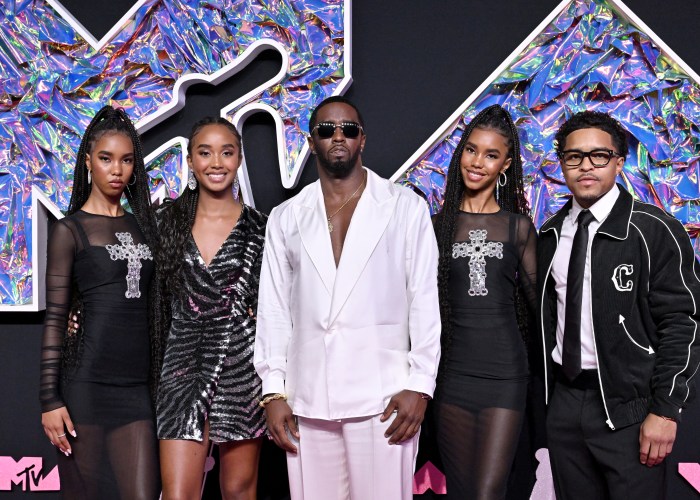 Sean Combs (center) with four of his children at the MTV Video Music Awards on Sept. 12, 2023. in Newark, New Jersey. From left to right: Jessie James Combs, Chance Combs, D’Lila Combs and Justin Dior Combs.
Sean Combs (center) with four of his children at the MTV Video Music Awards on Sept. 12, 2023. in Newark, New Jersey. From left to right: Jessie James Combs, Chance Combs, D’Lila Combs and Justin Dior Combs.
Axelle/Bauer-Griffin/FilmMagic
Looking back, Dixon said she never had any uncomfortable moments with Combs. The pair worked on records together, like Montell Jordan’s “This Is How We Do It (Remix)” and, most notably, Method Man and Mary J. Blige’s “All I Need.” This was the extent of her relationship with Combs. It was never anything beyond music, or as Dixon dubbed Combs, a “professional colleague.” Yet, as she attempts to process her own trauma and the abuse others have suffered, she knows what the music industry can take out of a person, but more importantly, what it can take from them.
“I was friends with Biggie before I ever met Puffy,” Dixon said. “My view of Puffy was filtered through Biggie’s …”
Dixon pulls back to look at her own battles within the industry. The intensity rising in her voice, she continues.
“That’s why the news that’s coming out about Puffy for me is triggering personally,” she said. “The two men who assaulted me are his role models.”
The mounting case against Combs is polarizing not merely because of the heinous allegations against him. It marks a watershed moment in hip-hop and the evolving conversation around sexual misconduct. Part of the tragedy lies in Combs’ talent. He knew how to mold stars and build legends such as Mary J. Blige, Jodeci, The Notorious B.I.G., Faith Evans, Usher, Mase and more. Combs’ impact on revolutionizing the sound of R&B and hip-hop during both genres’ rise in popularity in the 1990s is undeniable. His music owned the charts, clubs, cookouts and kickbacks. Long before “being outside” — being present at a location and enjoying yourself —was a popular phrase, Combs was the embodiment of the expression.
Related Story
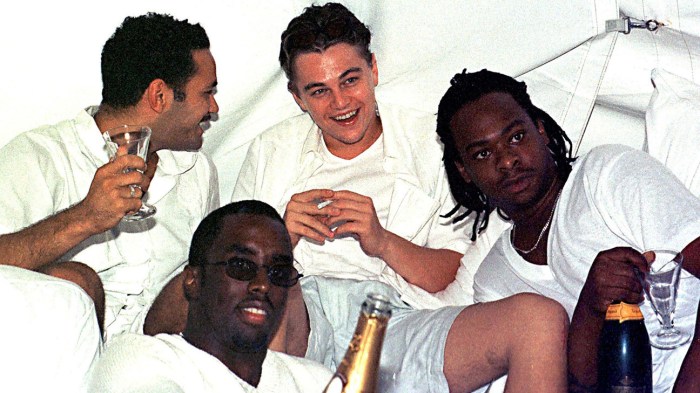 Diddy’s White Party kicked in the door, announcing ‘we up in here’Read now
Diddy’s White Party kicked in the door, announcing ‘we up in here’Read now
There’s no way to discuss Black music in American culture without mentioning his name. Combs lacked the musical nuances of music producer Quincy Jones, but he did have the ability to market himself and the interests around him like few others. Then, of course, there was his own music, which became an extension of the mega-celebrity that morphed him into an unstoppable force and immovable object by the turn of the century. Fashion, philanthropy, reality TV, media networks and even political visions became part of Combs’ robust universe. But his biggest financial cash cow was with the liquor conglomerate Diageo, which made Combs the face of their Ciroc vodka and DeLeon tequila brands. Their 15-year partnership reportedly earned Combs nearly a billion dollars.
For all the pageantry Combs has amassed, controversy has stalked him like an unshakable black cloud. The partnership with Diaego ended bitterly after Combs alleged that the company racially discriminated against and neglected his brands. They settled their dispute in January for an undisclosed amount. In 1991, a crowd stampede at City College left nine people dead following a celebrity basketball game Combs organized. In 1999, a judge ruled him partially responsible for the tragedy. The slaying of Death Row Records co-founder Suge Knight’s best friend, Jake Robles, outside of music producer Jermaine Dupri’s Atlanta birthday party in 1995, was primarily believed to be the doing of Combs’ former bodyguard, Anthony “Wolf” Jones. And the 1991 Source Awards worsened the Bad Boy/Death Row feud.
The killing of the Notorious B.I.G. in Los Angeles two years later in 1997 followed an industry party both he and Combs attended. In 1999, the Club New York shooting ultimately sent rapper Shyne to prison for a decade while Combs avoided time. (In the upcoming documentary The Honorable Shyne, the rapper, who is now a politician, said he was “absolutely set up to be the fall guy.”) The allegations of Combs’ shady contract practices with his artists have been hiding in plain sight for years. During a live broadcast on New York’s Hot 97 radio station, The Lox once threatened to push a refrigerator door off a skyscraper onto Combs. Mase told Cam’ron on their It Is What It Is podcast that he initially took him to meet The Notorious B.I.G. and not Combs because he knew he “would do right by him.”
Related Story
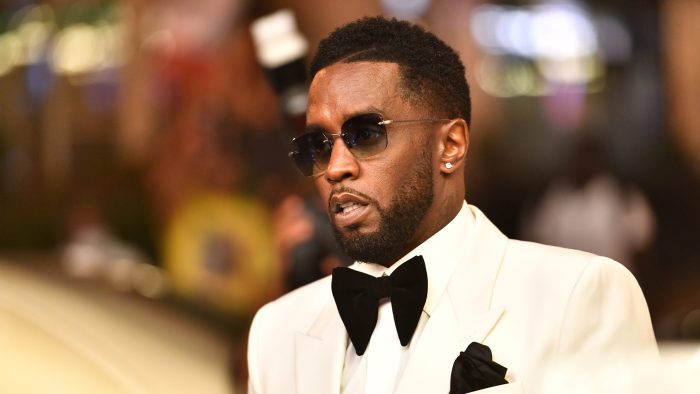 The media needs to handle the Sean ‘Diddy’ Combs saga with careRead now
The media needs to handle the Sean ‘Diddy’ Combs saga with careRead now
Meanwhile, a street rumor that Combs was responsible for organizing the hit on rapper Tupac Shakur circulated on the internet for years and gained legs following the arrest of longtime Southside Crip Duane “Keefe D” Davis in 2023. Davis has long alleged that he, his nephew Orlando Anderson (who was stomped on by Shakur following the Mike Tyson/Bruce Seldon boxing match in 1996 in Las Vegas), and two others were in the group that opened fire on the Shakur and Knight, and that Combs placed the bounty for the attack.
Yet, none of those controversies derailed Combs. In the months before everything unraveling, Combs experienced a surge of goodwill. He had pledged millions of dollars to historically Black Howard and Jackson State universities. He was returning publishing rights to his former artists. New York City mayor Eric Adams presented Combs with a key to the city just days after he received the Global Icon Award on the MTV Video Music Awards. Respectable reviews were given to The Love Album: Off The Grid, his first studio album in 17 years, which also generated palpable excitement.
Combs has been involved in many culture-shifting dates. None more than Nov. 16, 2023, when his former partner Cassie’s lawsuit went public. Combs settled a day later, but the damage was done. Allegations of rape and graphic physical abuse in multiple forms became instant worldwide fodder for conversation. Rapper Kid Cudi even confirmed Combs blew up his car following a brief romance between him and Cassie. In 2021, Combs told Vanity Fair that the #MeToo movement “inspired me” and that it showed him “maximum change” was possible. Now, it has permanently crippled his legacy.
The surveillance footage of Combs viciously assaulting Cassie in a Los Angeles hotel in 2016 only solidified the allegations against him, and the federal raids on his houses in Miami and LA all but spelled an indictment on the horizon. Voletta Wallace, the mother of the Notorious B.I.G., expressed her disappointment to Rolling Stone, telling the magazine that she hoped to see Combs one day and that all she wanted to do was “slap the daylights out of him.” The position Combs finds himself in — a legal imbroglio involving criminal charges and countless civil cases — has jettisoned everything that once made him a man of unique power and influence.
“Now that somebody of his magnitude can actually be held accountable where there are consequences,” Hubbard said, “I don’t know that I ever actually believed it was possible before this moment.”
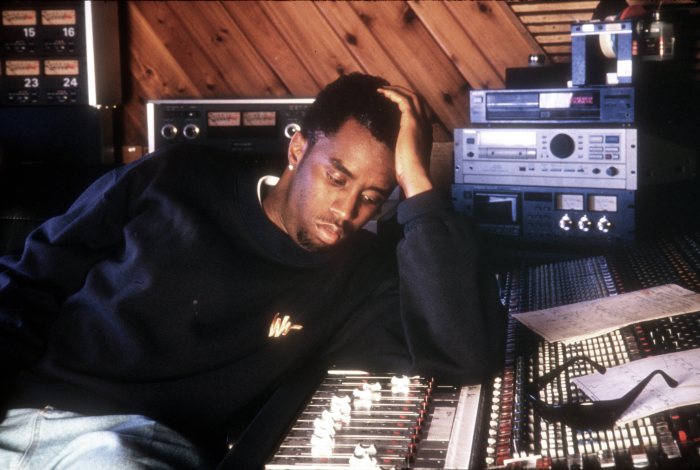 Sean Puffy Combs in the studio.
Sean Puffy Combs in the studio.
Al Pereira/Michael Ochs Archives/Getty Images
Combs faces odds of imprisonment that are nothing short of daunting. According to Pew Research, in 2022, only 290 of 71,594 defendants took their criminal cases to trial in federal court and were acquitted. Another 1,379 went to trial and were found guilty. Most defendants in criminal cases, 89.5%, plead guilty.
“[Federal prosecutors] are not allowed to prosecute unless they think they can get a jury to convict. It’s not enough that the grand jury found probable cause. So it’s a big deal,” Georgetown University law professor and author Paul Butler, a former federal prosecutor, said. “Statistically, the most likely result is that there’ll be a plea agreement between Mr. Combs and the U.S. Attorney for the Southern District of Manhattan. At this stage, everybody is saying they want to go to trial. That’s not unusual this early on.”
Combs’ defense will learn the totality of the evidence the prosecution has in the discovery stage, Butler said. He also expects Combs’ legal team to “almost certainly” try and get some evidence thrown out, such as the hotel video. Prosecutors confirmed as much Thursday, saying they weren’t responsible for the footage of Combs assaulting Cassie because they didn’t possess the video at the time.
“We’re only hearing one side. His lawyers have made some statements both in and out of court, but it’s hard to get a sense of what their defense will be,” Butler said. “Part of it seems to be that the ‘freak-offs’ were consensual and that no one, including the sex workers and the cronies of Diddy who participated in them, was participating involuntarily. But the reality is Diddy isn’t being charged with freak-offs themselves. He’s being charged for violence and intimidation.”
For now, Combs lives in a facility that was the recent location of a Department of Justice sweep following the killings of two inmates. It’s a jail that has long experienced complaints of inhumane conditions, drug smuggling, constant violence and more.
Until his day in court arrives, and perhaps even after that, Sean Combs can’t escape the hell that now lives around him.
From rapper 50 Cent to comedian Katt Williams and even the Billboard Latin Music Awards, Combs has become a punch line. He’s no longer the pillar of pop culture superiority. Combs will get his chance in court to prove his innocence, but given what’s already confirmed as fact, envisioning a world where he returns to life as he, and we, once knew is impossible. The endorsements and partnerships are a thing of the past. And the years of alliances and friendships appear inoperable.
“I believe the public reaction is rooted in fear. I’m not saying they’ve all been complicit, but if they speak out now the question is gonna be, ‘But you knew this for 30 years!’ So then it would open up to more questions for them,” Hubbard said. “Not to say that they were all involved, but they’re protecting themselves from public scrutiny.”
At 55, the rest of his life, guilty or not, figures to be lived as a pariah. Every word he has ever said about anything associated with his lifestyle will be viewed under the guise of debauchery. A verdict won’t change the depth of the lawsuits, nor will it ever erase from memories the video of him beating Cassie. How does a man whose entire public persona has been “outside” for generations when “outside” is no longer available to him? Where does it leave the music he’s created?
Related Story
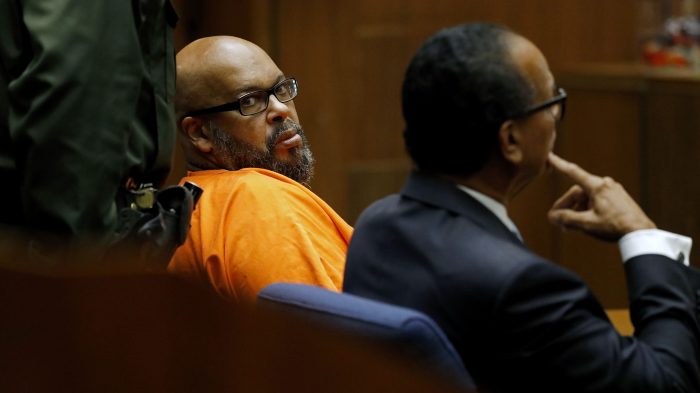 For Death Row’s Suge Knight — violent bully, music executive — it seems the ride is overRead now
For Death Row’s Suge Knight — violent bully, music executive — it seems the ride is overRead now
“I don’t think there’s gonna be a massive exodus to not play his music anymore, because the domino effect is gonna hurt so many people who aren’t predators,” Hubbard said. “He never worked in isolation.”
Combs is now in the company of men such as singer R. Kelly, comedian Bill Cosby, film producer Harvey Weinstein, Simmons and financier Jeffrey Epstein. These were influential men whose power ran parallel with an extreme dark side that eventually came to light. Their music or connection to power wasn’t their sovereignty. Depravity and control was. The implications that will arise in the coming months aren’t just about the reported abuse or harm done to young artists or executives — women, men or even children. It’s about the entire culture that turned the keys of the kingdom over to predators and the lesson that money and power can usurp morals and dignity.
“Black music has always been one of the most important tools of our liberation, and it’s been perverted. And I’m disgusted,” Dixon said. “I hope this is the end, so we can break the cycle and find the next hip-hop love song and nurture the next Nina Simone so that the next generation of young Black artists who are as artistic, introspective as Taylor Swift and Billie Eilish. Our kids deserve that, which is why people with integrity, who can also make hits, should hold the keys to the Black musical kingdom.
“I am so grateful to every single survivor coming forward to tell the heartbreaking story of who Puffy really is, which by the way, is a profound tragedy. I’m not celebrating this moment, because it is devastating that this genre that Black and brown kids created from next to nothing 50 years ago, which has become an unprecedented force for Black wealth creation and empowerment, this genre that could’ve uplifted us, has been twisted by a handful of gatekeepers into something so toxic,” Dixon said.
Combs once said that his parties would get him arrested one day. He wasn’t wrong. How the ecosystem around him allowed his world to morph into the indestructible empire it became is more of an indictment. This is Combs’ legacy now. It’s not just something he has to come to terms with — the entire culture does. The most challenging conversations and examinations have yet to begin.
Justin Tinsley is a senior culture writer for Andscape. He firmly believes “Cash Money Records takin’ ova for da ’99 and da 2000” is the single most impactful statement of his generation.
